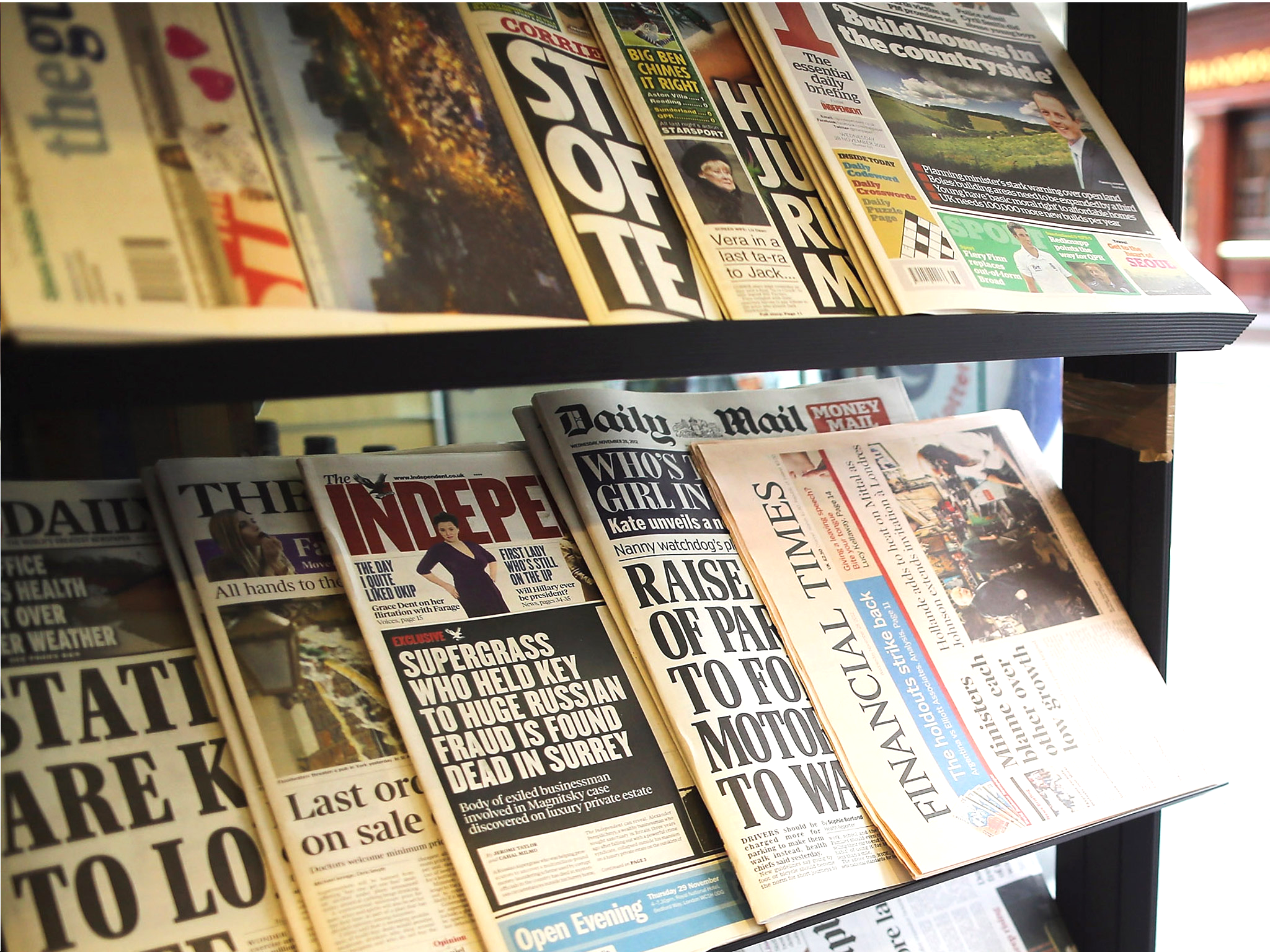Leveson: Newspapers and magazines reveal 'Independent Press Standards Organisation'
Claiming to deliver 'key recommendations', IPSO will not need the underpinning of a royal charter to impose £1m fines

A rebranded and revamped replacement for the defunct press regulation body heavily criticised by the Leveson Inquiry, has been revealed by a group representing Britain's largest newspaper and magazine publishers.
The constitutional structure of the new " Independent Press Standards Organisation" (IPSO), will now be looked at by the Privy Council ahead of the current government-backed royal charter which was passed by parliament in March.
Claiming to be a "complete break from the past" and to deliver "key recommendations" made in the Leveson report, IPSO will not need the underpinning of a royal charter to impose £1m fines, operate a whistle-blowers hotline, investigate complaints and to allow "upfront corrections and adjudications".
Paul Vickers, the legal director of Trinity Mirror who chaired the group of newspaper and magazine publishers which drew up the IPSO's constitution sent to the government, said the new body would have "very real teeth". Mr Vickers, in an interview with the BBC, denied it was a "creature of the industry" and claimed to have the support of the Culture Secretary, Maria Miller.
The clash of two distinctly different visions for the regulatory future of Britain's fourth estate has already created constitutional shock-waves. The former deputy prime minister, Lord Prescott, has announced he is to resign from the Privy Council over the "highly political " way the sovereign advisory body has acted over plans for a new regulatory framework for the press.
Lord Prescott criticised the IPSO constitution being given precedence over the charter already voted on by parliament. He said the decision confirmed his " worst fears" that the government were rushing the examination of an industry-backed version of regulation through the Privy Council. He called the process a "conspiracy between the Prime Minister and the press."
David Cameron has said that the press-backed charter, rather than royal charter approved by MPs in March, had "serious shortcomings".
Although the new IPSO constitution can be seen as marginalising the hard-line recommendations put forward by Lord Justice Leveson and the retention of self-regulation backed by Rupert Murdoch's News UK, the Daily Mail publisher, Associated Newspapers and the Telegraph Media Group, other UK newspaper groups who previously offered support for March's royal charter, reacted positively to the new structure.
Chris Blackhurst, the newly-appointed group content director of The independent and Evening Standard titles said "We've always called for genuine transparency and today's development should go some way towards allaying that concern. These proposals should lead to a beefed-up system with genuine punishments and the power to launch investigations. "
A spokesman for Guardian News and Media, who along with the Financial Times and The Independent, had previously been luke-warm to an industry-dominated regulator, said "We look forward to receiving the documents [the IPSO draft constitution] and participating in the consultation."
Brian Cathcart, the executive director of the Hacked Off pressure group which participated in the political manoeuvring behind the royal charter, told The Independent : "On this evidence the newspaper industry looks to be still in denial about the need for change. If it really wants to convince us, it should back the March charter in the same way the public and victims have done."
Professor Cathcart said IPSO was simply "cosmetic change" and a way of "ducking the royal charter". He claimed the Privy Council could only advise and judge policy, not create its own, and that once the alternative to the charter was rejected the newspaper industry would seek a judicial review that could push future regulation beyond the next general election.
Mr Vickers also issued a similar threat saying there were "large parts of the industry that would find it very, very difficult to support [a charter]" . He warned that with annual costs of the charter structure estimated at £3.5m to £4m, a "critical mass of papers and publishers" would simply "walk away".
Join our commenting forum
Join thought-provoking conversations, follow other Independent readers and see their replies
Comments
Bookmark popover
Removed from bookmarks